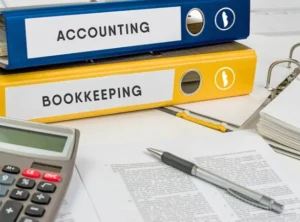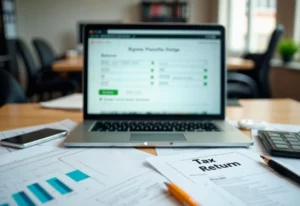If you’re a landlord juggling tenants, lease agreements, and endless repairs, you know how quickly things can get overwhelming. Between tracking rent payments, managing maintenance costs, and keeping lease details straight, it sometimes feels like you need an extra pair of hands, or maybe a whole team. Many landlords and rental property owners turn to QuickBooks to simplify bookkeeping. QuickBooks for landlords gives you clear financial tracking, automated reports, and tax-ready records without the need for advanced accounting skills. Whether you own a single rental property or a growing portfolio, QuickBooks can help you stay organized and in control.
In this post, you’ll learn how to set up QuickBooks specifically for landlords, the best ways to track tenants and leases, and smart tips for keeping your expenses under control. Stick around, you’ll get practical advice to make your rental business smoother and more profitable.
Why Landlords Use QuickBooks for Rental Property Accounting
Let’s be honest, owning rental properties sounds glamorous until you’ve had your phone ring at 11 p.m. because the heater in Unit 3 stopped working in the middle of January. Or you realize you forgot to invoice a tenant for last month’s rent because your “system” was a sticky note on the fridge.
Rental property management is not just about collecting checks. It’s part accounting, part detective work, and part crisis control. And if you’re managing more than one property, it can feel like herding cats. Expensive, paperwork-heavy cats. That’s why many landlords use QuickBooks for landlords as their go-to solution.
That’s where QuickBooks for landlords comes in. It’s not just about balancing the books, it’s about giving you a bird’s-eye view of your rental business. You can track every payment, expense, and lease detail from one dashboard, so you spend less time on admin and more time making strategic decisions.
How to Track Tenants and Leases in QuickBooks for landlords
Think of tenants as “customers” in QuickBooks. Each one gets their own profile, which stores payment history, lease terms, and contact details.
With QuickBooks for landlords, you can:
- Set up recurring invoices for monthly rent payments.
- Track security deposits in separate liability accounts.
- Attach scanned copies of lease agreements for quick reference.
This makes rental property bookkeeping far more organized than spreadsheets or paper files.
Example: If you manage three apartments, you can create “Customer A” for 101 Main Street – Unit 1, “Customer B” for Unit 2, and so on. QuickBooks keeps rent schedules separate, so you never mix up payments.
Using QuickBooks for Rental Property Expenses and Maintenance Costs
Owning a rental means constant expenses. Utilities, repairs, property insurance, and sometimes emergency fixes at 2 a.m. QuickBooks Online for rental properties makes recording these costs painless.
Here’s how landlords typically use it:
- Categorize expenses as repairs, maintenance, utilities, insurance, or supplies.
- Snap a photo of receipts and attach them in QuickBooks right away.
- Use vendor tracking to see how much you’ve paid each contractor over time.
For example, if you call the same electrician three times a year, QuickBooks will show exactly what you’ve spent, helping you budget better or even negotiate rates.
Handling Security Deposits and Refunds
Security deposits aren’t income, they’re liabilities until the tenant moves out. QuickBooks helps you handle them correctly:
- Record deposits in a liability account.
- Refund from that account when the tenant leaves (if no deductions apply).
- If you deduct for damages, log the expense and reduce the refund accordingly.
This keeps your books clean and ensures you’re compliant with local landlord-tenant laws.
Essential QuickBooks Reports for Landlords and Property Owners
One of the biggest benefits of QuickBooks for landlords is its reporting power. These reports give you instant insight into each property’s performance and help you make smarter rental business accounting decisions.
- Profit & Loss by Property – See whether each unit is profitable.
- Cash Flow Statements – Monitor income timing and payment delays.
- A/R Aging Report – Identify overdue rent and how much is outstanding.
I worked with a landlord who assumed his duplex was his best earner. A QuickBooks P&L revealed that after constant plumbing repairs, it was barely breaking even. The data changed his entire investment strategy.
Managing Multiple Properties or Units
If you own multiple properties, QuickBooks’ Classes and Locations feature is a lifesaver:
- Classes let you tag every transaction to a specific unit.
- Locations give you a high-level overview of each building’s performance.
With QuickBooks rental property management, you can run reports for each property separately. This lets you decide on rent adjustments, renovations, or even selling a property with clear data instead of guesswork.
Common QuickBooks Mistakes Landlords Should Avoid
Even with powerful rental property accounting software like QuickBooks, mistakes happen.
- Mixing personal and property expenses in one account.
- Misclassifying repairs vs. capital improvements (affects your taxes).
- Updating QuickBooks only at year-end instead of consistently.
Catching these early keeps your reports accurate and your tax filing smooth.
Tips to Maximize QuickBooks for Landlords
A few pro tips to make QuickBooks for rental properties work harder for you:
- Automate rent invoices so tenants get reminders without you lifting a finger.
- Use bank feeds so rent payments and expenses reconcile automatically.
- Capture receipts instantly with the QuickBooks mobile app.
- Share access with your accountant for real-time oversight.
Visit AccTax resource page for more insights about QuickBooks.
QuickBooks vs Dedicated Landlord Software
Why QuickBooks Still Works for Landlords
QuickBooks wasn’t built just for landlords, but it still checks a lot of the right boxes. If your main pain point is bookkeeping, it’s hard to beat. You get full accounting tools, tax-ready reports, and the ability to track every dollar that comes in or out. Many accountants already use QuickBooks, so handing off your books at tax time is easy.
Another plus is flexibility. You can set up each property or unit as its own class or location, tag every transaction, and run property-by-property reports. And because QuickBooks integrates with so many apps, you can add features as you grow instead of paying for things you don’t need right away. For landlords with just a handful of rentals, QuickBooks often ends up being more cost-effective than jumping straight into dedicated property management software.
When Landlord Software Makes More Sense
That said, QuickBooks isn’t everything. If you’re managing a larger portfolio, or if you need tools beyond pure accounting, dedicated landlord software might be worth it. These platforms often come with built-in tenant portals where renters can pay online, log maintenance requests, and sign lease renewals. You also get automation for things like late fees, reminders, and work orders, things QuickBooks doesn’t do out of the box.
The more units you manage, the more these time-saving features matter. What feels manageable with three tenants can get messy with thirty. Dedicated software is also stronger when it comes to tenant-facing tools, communication, and compliance with rental laws.
Quick Rule of Thumb
-
Fewer than 5 units? QuickBooks usually does the job.
-
Growing portfolio with lots of tenants? Consider landlord software.
-
Want both strong accounting and tenant management? Some landlord platforms integrate directly with QuickBooks so you get the best of both worlds.
Where Professional Help Can Make a Difference
QuickBooks is incredibly powerful for rental property management, but here’s the truth: it’s only as good as the data you put in. If entries aren’t made consistently or if tax categories aren’t applied correctly, you might end up with misleading reports.
That’s where working with a professional bookkeeper can pay off. At The AccTax Company, we’ve helped landlords set up QuickBooks specifically for rental property management, customized chart of accounts, and clear reporting for multiple units. It’s not about selling you something, it’s about making sure your numbers actually tell the real story of your business.
Because at the end of the day, knowing exactly which property is making you money (and which one is quietly eating it up) is how you build long-term success as a landlord.
Final Thoughts
Managing rental properties is part business, part patience, and part problem-solving. QuickBooks rental property accounting software won’t fix a broken furnace or mediate disputes, but it will keep your financials in check so you know exactly where your rental income is going.
When you’re in control of your numbers, you can make smarter decisions about rent pricing, repairs, and investments. That’s how you turn rental properties into long-term profit instead of constant stress.
Got a favorite QuickBooks tip for landlords? Share it in the comments. And if you know a landlord still struggling with spreadsheets, send them this post, they’ll thank you later.
And if you ever feel like your QuickBooks setup could use a professional touch, The AccTax Company is always happy to help landlords streamline their bookkeeping, so you can focus on what you do best.




